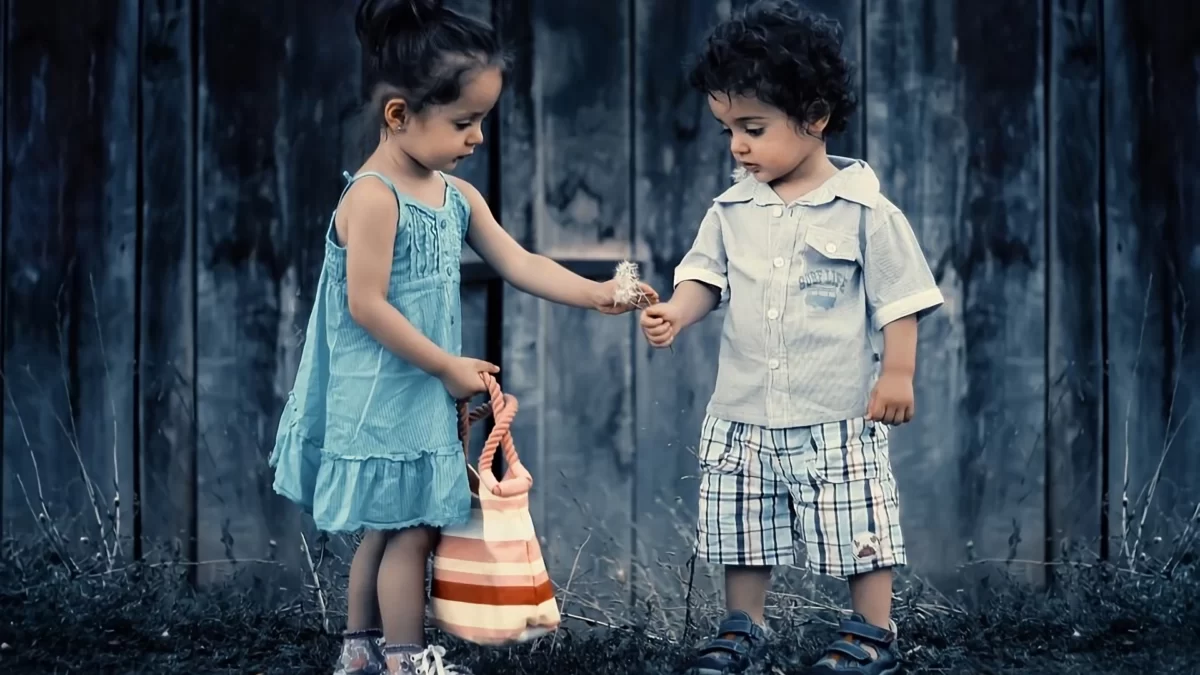Transmitting to children the importance of saying thank you, of "asking please" or of saying "good morning" or "good afternoon", goes beyond a simple act of courtesy, we are investing in emotions, in social values, and above all, in reciprocity
To create a society based on mutual respect, in which civility and consideration make a difference, it is necessary to invest in those small social customs, to which we sometimes do not give the importance they deserve. Because coexistence is based, after all, on harmony, on those quality interactions based on tolerance where every child should start from an early age.
An error that many families tend to make is to introduce the children to these rules of courtesy when the little ones start to speak. Now, it is interesting to know that the "social brain" of a baby is tremendously receptive to any stimulus, the tone of voice and even the facial expressions of his father and mother.

Whether we believe it or not, we can educate a child in values from a very early age. Their abilities are almost unsuspected and we have to take advantage of that great sensitivity in emotional matters.
Giving thanks, a weapon of power in the child's brain
Neuroscientists remind us that a child's neural system is genetically programmed to “connect” with others. It is something magical and intense. Even the most routine activities such as feeding, bathing or dressing them become brain imprints that prefigure in one way or another the emotional response that child will have in the future.
The design of our brains, so to speak, makes us inexorably drawn to other brains, to the interactions of all those around us. Thus, a child who is treated with respect and who from an early age has been used to hearing the word "thank you" will quickly understand that he is facing a positive reinforcement of great power and, without a doubt, he will unravel little by little.
It is very likely that a 3-year-old child who has been taught by his mother and father to say thank you, please or good morning, does not yet fully understand the value of reciprocity and respect that these words impregnate. However, all this creates a suitable and wonderful substrate for strong and deep roots later.
After all, the magical age between 2 and 7 years is what Piaget called the "intuitive intelligence stage". It is here where the little ones, despite being subservient to the adult world, will progressively awaken to a sense of respect, to intuit that universe that goes beyond their own needs to discover empathy, the sense of justice and Of course, reciprocity.
Reciprocity, a weighty social value
When a child finally discovers what happens in his closest contexts when he asks for things please and concludes with a thank you, nothing will be the same anymore. Until now, he carried it out as a prosocial norm set by adults, something that gave him positive reinforcement for his good behavior.
"Education does not change the world, it changes the people who are going to change the world"
-Paulo Freire-
However, sooner or later she will experience the true effect of treating an equal with respect, and how that action reverts to him or herself. It is something exceptional, a conduct that will accompany you forever, because treating others with respect is also respecting yourself, it is acting in accordance with values and a sense of coexistence based on a weighty social and emotional pillar: reciprocity.

It will be around the age of 7 when our children fully discover all these values that make up their social intelligence. It is that moment in which they begin to give more importance to friendship, to know what that affective responsibility implies, to understand and enjoy collaboration, attending to the needs of others and interests different from their own.
It is undoubtedly a wonderful age where every adult must keep in mind an essential aspect: we must continue to be the best example for our children. Now, the magic question is the following…
How do we instill in our children from an early age those rules of coexistence, respect and courtesy?
We offer you some simple strategies for you to take into account, they are basic indications to point out to children in each situation. It is worth keeping in mind.
- Have you arrived or entered somewhere? Say hello, say good morning or good afternoon
- You go? Say goodbye
- Did they do you a favour? Have they given you anything? Give thanks
- Have they talked to you? Reply
- Are they talking to you? Listen
- Have something? share it
- You do not have it? Do not envy
- Do you have something that is not yours? Return it
- Do you want them to do something for you? ask for it please
- You are wrong? apologize
Simple rules that, without a doubt, will be of great help on a day-to-day basis.
By Valeria Sabater
